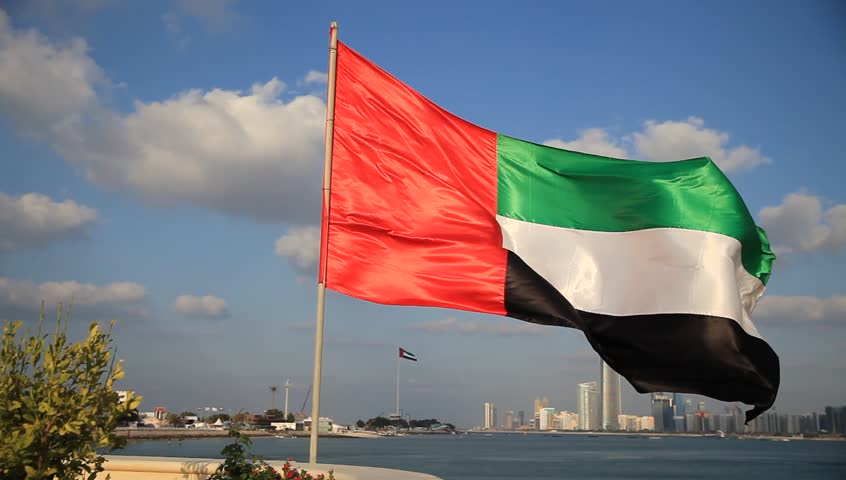The United Arab Emirates (UAE) is a dark police state that regularly abuses human rights and represses its citizens. The UAE targets political opponents and activists, and criminalizes fundamental freedoms and basic human rights. The country also has a history of systematic torture, enforced disappearance, and arbitrary arrest, and women and migrant domestic workers continue to face structural discrimination and exploitation.
In 2012, the UAE issued amendments to its Cybercrime Law, which broadened the scope and gave more power to authorities by allowing them to pursue anyone who “cast doubt on the country’s political system through social networks,” including Twitter, Facebook and email. Through this legislation, authorities could easily use a counterterrorism narrative to legitimize their atrocities and to persecute any political dissidents through the legal system. Since the amendments were enacted, many UAE human rights activists have been accused of violating the Cybercrime Law under various circumstances, with at least 17 of them being prominent social activists.
On 29 May 2018, Ahmed Mansoor, an award-winning human rights activist, was convicted by the UAE Federal Supreme Court for insulting “the status and prestige of the UAE and its symbols”, publishing “false information and rumours” and promoting “sectarianism and hatred,” relating to comments on his Twitter. He was sentenced to ten years in prison, and his sentence was upheld on 31 December 2018. This was not the first time that Mansoor was convicted for expressing opinions online. In 2011, he was arrested on similar charges and was sentenced to three years in prison with other members of the UAE 5, a group of five political activists running an anti-government website during the Arab Spring. The following day the five were released due to a pardon by the UAE President, but since then all of Mansoor’s electronic devices have been hacked by the government and were closely monitored under surveillance.
Similarly, Tayseer al-Najjar, a Jordanian journalist and human rights defender, was convicted and sentenced to three years in prison in 2015 for Facebook posts written prior to his move to the UAE and for the critical comments he had made to his wife over the phone. In addition, a year earlier, Osama Al-Najjar, a blogger and human rights defender, was sentenced to three years in prison under the Cybercrime Law for posting tweets in defense of his father, Hossain Al-Najjar, who was sentenced in the unfair mass trials of 94 political activists in 2013.
The UAE also has a serious record of torture in prisons, and has repeatedly tortured prisoners who oppose the government. Despite being a signatory to the Convention against Torture and Other Cruel, Inhuman or Degrading Treatment or Punishment (CAT), systematic torture occurs in various UAE prisons. Of the 124 UAE prisoners interviewed by Reprieve in 2013, over 75% said they had been physically abused at some time after their arrest, and 95% were interviewed by prosecutors without a lawyer present. Osama al-Najjar, the aforementioned blogger and human rights activist, said that he was “punched and beaten repeatedly all over his face and body and threatened with electric shocks” during his detention.
In the UAE, women are continuously exploited and discriminated against. Women require permission from a male guardian to marry, and systematic discrimination against women prevents them from reporting sexual harassment and rape to the law enforcement. Reporting such instances could be used against them, for example, in 2013 a Norwegian girl reported a rape to the police and she was sentenced to 16 months in prison for “having extramarital sex, drinking alcohol, and perjury.” Such laws put women in greater danger, as potential offenders know that they would be exonerated.
Migrant workers also face severe discrimination and exploitation in the UAE. The kafala system poses an enormous threat to migrant domestic workers because the system binds their legal status to their employer, therefore preventing them from either changing employers or filing lawsuits against employers, even when their human rights are violated. Many migrant workers have reported that they were physically abused and working excessive hours with delayed wages, however, since their passport is confiscated by their employers upon arrival to the UAE, they have no way to leave.
The UAE’s ongoing and embedded violations of human rights creates a repressive environment that prevents forms of peaceful dissent, criminalizes free expression, and discriminates against women and migrant workers. The UAE must take concrete measures to improve the situation in the country and allow for fundamental freedoms and protection for all.
Cindy Lu is an Advocacy Intern with ADHRB.





